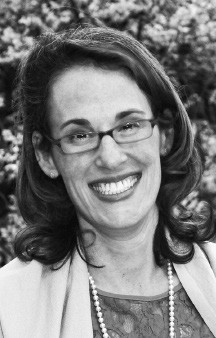Celebrate the whole person, including the imperfections
“2715 Hits Eclipsed by One Miss” read the headline in the sports section eulogizing baseball great Bill Buckner this past spring. The mishap in Game 6 of the ’86 World Series haunted Buckner’s professional legacy and career. But not Buckner himself. Bill Buckner got over it, telling the Boston Globe in 2003, “Everyone in life has things that don’t go according to plan.”
As we walk through this season of reflection and repentance, Buckner’s words inspire. Our great challenge is not to become bogged down with the mistakes we have made; the wrongs done to us by others. We are charged with forgiving ourselves and others so we can enjoy each day and move forward into the future.
Jewish tradition teaches that we are no less holy for our mistakes. To err is human, wrote the poet, to forgive divine. Indeed it can be more difficult to accept the reality of our foibles, to view the damage that life inevitably brings to us, and that we inadvertently bring to others. It is no wonder that Nora Ephron wrote “The main thing you learn from a failure is that it’s entirely possible to have another failure.”
We want to plan the perfect trip, the perfect celebration of the holidays, or even the perfect retirement. We spend much time worrying about being the perfect parent, friend or professional. (I know I do.) The picture in our heads of how it is supposed to look holds us back from moving forward. It is impossible to get it right all the time. And that is why we must forgive ourselves, knowing that we are enough.
In a society where we worship at the altar of achievement, it can be comforting to note that brilliance does not mean perfection. Albert Einstein often played the violin with other scientists. Apparently, he sometimes irritated the other musicians by not coming in on the beat. “He couldn’t count,” a colleague complained. Do we doubt Einstein’s contribution to the world because he did not have rhythm?
There is more written in the Talmud about how to respond to an error than there is about the times when we get it perfectly right. Pages are spent responding to what to do if a person leaves a word out of a prayer, has a cracked shofar or drops some milk in a meat stew. The rabbis were well aware that we get it wrong more often than we get it right.
There is an African phrase describing a good cook as “she who has broken many pots.” If one has spent enough time in the kitchen to have broken a lot of pots, it is safe to assume that one knows a fair amount about cooking. Similarly, chefs today often spend time comparing knife wounds and burn scars because they know how much credibility their failures give them.
By breaking many pots, by our own scars, we do not lose value. On the contrary, our disappointments, our losses and our failures form the patina of experience that gives our lives depth. We need not be perfect. It is our blemishes that make us human.
Our greatest leaders in the Bible were imperfect. Moses had a stutter, Jacob stole the birthright, David slept with another man’s wife and then sent the woman’s husband to die in a war. Even Aaron, the high priest, was far from perfect – he stood by and watched the greatest incident of idolatry in our history – the building of the Golden Calf. Rabbi Yehudah Leib Alter, the Gerrer Rebbe, taught that if one has nothing to be ashamed of, then that person’s ancestors never stood at Mount Sinai. Imperfection, throughout history, is our human legacy.
When Moses made one of his biggest blunders – breaking the first set of tablets – the ancient rabbis spent much time describing what happened to the pieces. One midrash teaches that these shattered remnants were as valuable as the whole tablets – likening them to jewels. Another rabbi taught that the broken pieces were carried throughout the wilderness with the Israelites in their very own ark.
Our broken pieces have value as well. They endow us with humility, grace and sensitivity. As a modern Jewish sage, Leonard Cohen, wrote: “There is a crack in everything. That’s how the light gets in.” If we can forgive ourselves for our imperfections, it opens the door for us to be as good as we need to be.
There is no exact word for perfect in Hebrew. Tamim, means “complete” and “pure of heart.” That is just how we stand before God during these Days of Awe, not perfect, but with our whole selves – the parts of which we are proud, and the parts of which we are ashamed. We all have a “Game 6” error (perhaps not played out in the public sphere). How we handle these mistakes is our choice. Bill Buckner possessed the grace to move forward and celebrate his hits. As we enter 5780, may we be blessed with wisdom to do the same.
SARAH MACK, a rabbi at Temple Beth-El in Providence, is president of the Board of Rabbis of Greater Rhode Island.








